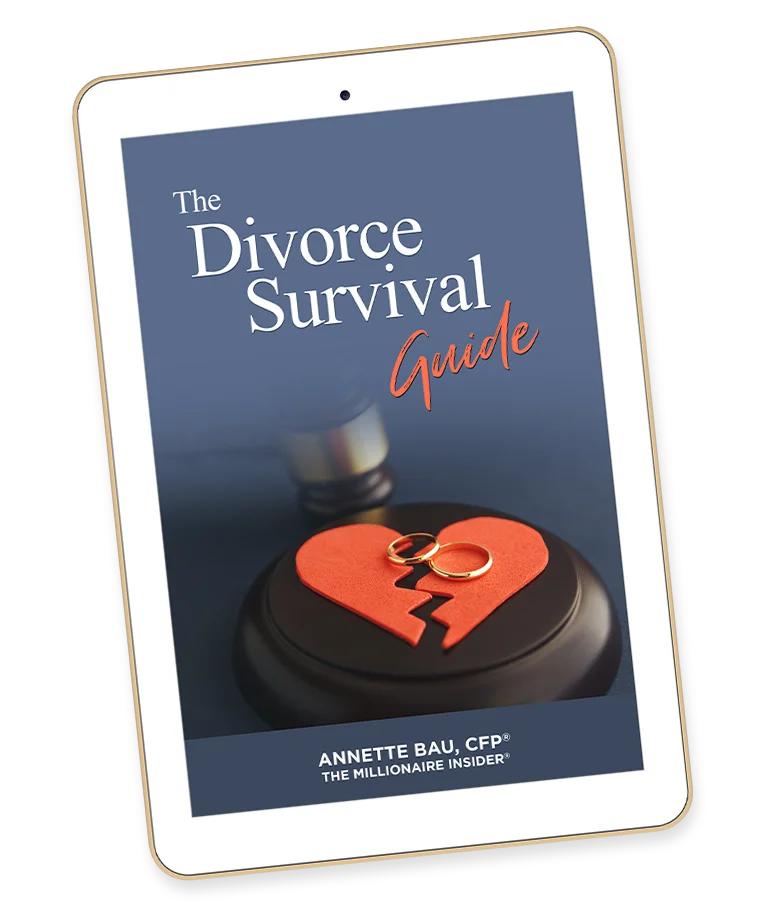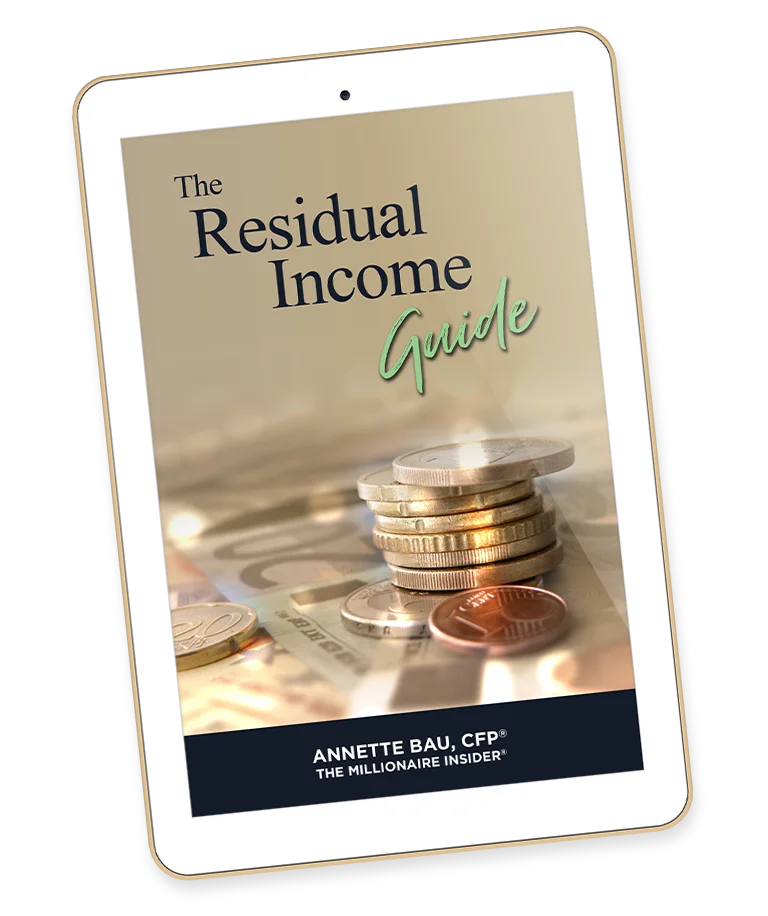What is a Gray Divorce?
A gray divorce is a divorce that occurs later in life, typically to a Baby Boomer who is over the age of 50. There are various names, including grey divorce and silver divorce, which some prefer. They are becoming increasingly common. While the divorce rate in the United States has declined over the past 20 years, the divorce rate among older age groups (50 and beyond) has doubled.
Several factors can contribute to older couples divorcing, including empty nest syndrome, grown children, midlife crises, changes in financial circumstances, or the desire for independence. For some, divorcing later in life can be difficult to adjust to, both emotionally and logistically. Still, for others, it is a time to create a new life after years of marriage.
Disclosure
All materials and intellectual property are copyrighted by MillionaireSeries.com®.
This information is for educational purposes only. It is not intended to replace any advisor or specialist or provide any investment, financial, tax, retirement, planning, or healthcare advice.
By reading this, you agree to hold MillionaireSeries.com® and its affiliates harmless for results achieved or not achieved.
The Reality of Divorcing Later in Life

Ending a marriage later in life can be challenging. Add 20, 30, or 40 years of marriage, and it can get very complicated. That is why it is important to find an experienced financial advisor and divorce attorney to protect your rights.
You may want to seek the guidance of a Certified Divorce Financial Analyst (CDFA®). This is a financial planner experienced with tax rules and family law guidelines in dividing assets and income.
While some states are community property, others are not. Community property means that both spouses are considered joint and equal owners of the assets and debts acquired in marriage unless you have a prenuptial or postnuptial agreement or the deed says otherwise. Regardless of your resident state, you want to be well informed of the laws that may impact you. The first step is to complete or update your financial plan. This will allow you to assess your financial situation. You will need to create a balance sheet that lists all your joint and separate assets and liabilities and a profit and loss statement, which includes your income and expenses. It is always a good idea to meet with a qualified advisor and attorney before filing for divorce or even notifying your partner of your intent.
Divorce can be lonely and difficult regardless of your age. If you or a loved one have questions about divorce planning or other financial matters, click here to request additional support and resources.
Factors to consider when divorcing
Examples include:
Savings Accounts

All checking, savings, and money market accounts (cash or cash equivalence) should be accounted for. Unless there is a prenuptial or postnuptial agreement or the account is the asset of one partner, these assets will be equally divided.
Healthcare
If you are not eligible for Medicare, you need to determine where you can get coverage and who will pay for it.
Insurance
Before divorcing, you must review all insurance policies, including long-term care, disability, and life. You need to confirm the owner, insured, and beneficiary. You will need to determine who will own and pay for the policies after your divorce.
Retirement Plans

List all retirement accounts, including who the owner is. If one party has more retirement assets than the other, a QDRO (qualified domestic relations order) will be used to divide and equalize the retirement assets. By dividing the assets in this way, each spouse can receive their independent retirement income, which can help to provide financial stability during retirement.
If either spouse has a pension or defined benefit plan, it will have to be valued for community and separate property interest to determine the division for each spouse.
If you need help regarding your financial affairs, click here to get additional support:

Investment Accounts
Market volatility can cause investment accounts to fluctuate during the divorce process. Therefore, rather than divide accounts by dollar value, it is advised to divide accounts by percentage or number of shares. Division of stock options and RSUs (restricted stock units) in either public or private companies are calculated using model formulas designed specifically for divorce.
Social Security benefits
Divorce can have an impact on Social Security benefits in several ways. One way is that if you were married for ten years or longer, you might be eligible to receive Social Security benefits based on your ex-spouse’s work history.
Another way divorce can affect Social Security benefits is if you are divorced and remarry. You may be able to receive Social Security benefits based on your new spouse’s work history once you are married for one year. Finally, if you are divorced, and your ex-spouse dies, you may be eligible to receive Social Security survivor benefits.
Because laws change and your situation is unique, always check with a qualified life transition expert.
Estate Planning

Divorce can significantly impact your estate plan, especially if you have substantial assets. If you are going through a divorce, it is essential to update your estate plan so that your ex-spouse does not inadvertently inherit any of your assets. You may also want to consider creating a trust so that your assets are protected in the event of your death.
Business holdings
There are several potential ways that divorce can affect business holdings. For example, it is important to know if the business is separate property or a marital asset that will be split between the couple. It also matters whether there is a prenuptial or postnuptial that addresses the division in the event of a divorce.
Real estate
Divorce can have a major impact on real estate, including both property and financing. In many cases, a couple divorcing will sell the family home, and each will purchase their own property. This can often be a difficult process, as there may be disagreements about who gets what property or how the proceeds from the sale should be divided.
In other cases, one spouse may keep the family home, and the other may buy a new property. And there may be issues with financing and ownership. In any case, consult with an expert before finalizing any real estate or other asset division.
Taxes
If you are considering divorce, knowing how this process can affect your tax planning is essential. Depending on the circumstances, divorce can significantly impact your taxes, both in the short and long term. For example, the primary breadwinner in a family will see an increase in their tax liability after divorce.
Divorce can also affect your eligibility for certain tax deductions and credits. For example, if you have children, you may no longer be able to claim the child tax credit. Additionally, you may no longer be able to deduct alimony payments on your taxes. It is essential to speak with a tax professional to understand how divorce may impact your specific tax situation.
Why are People Divorcing Later in Life?
Higher risk
Second, third, and even fourth marriages are more common in the Baby Boomer generation. And they have a lower success rate.
Postponing the Inevitable
Many long-term marriages end after the children are grown. One or both spouses aren’t happy in the marriage but choose to wait until the children are grown.
Empty Nesters
Other couples discover their marriage is not strong enough to survive after their adult children leave home.
Retirement

When one or both partners retire, the lifestyle change can take a toll on the marriage. Some people who have never spent much time together during their working years find they are incompatible.
Financial Reasons
Some people wait to divorce until they feel financially stable. This often refers more to women than men. Interestingly, 66% of divorces between the ages of 40-69 are initiated by women. It is believed this is because they feel more financially independent. Others may be married to a spendthrift who won’t budget or save money for retirement. If you or your partner have a hard time budgeting, click here to download the Magical Budget Template.
In the event, you find managing money difficult, click here to learn about money blocks and how to release them.
Famous Gray Divorces
The divorce rate for long-term mature couples includes celebrities. With increasing frequency, famous couples are splitting after decades of marriage.
Examples include:
- Bill and Melinda Gates
- Dan Aykroyd and Donna Dixon
- Clint Eastwood and Dina Ruiz
- Morgan Freeman and Myrna Colley-Lee
- Arnold Schwarzenegger and Maria Shriver
- Mel and Robyn Gibson
Conclusion: “What is Gray Divorce?”
Older couples divorcing has increased dramatically.
And while there are different challenges with divorces that occur later in life, you must take steps to prepare and plan for a divorce regardless of your age or situation.
Finding a support group of others facing a marriage dissolution can help make the process easier and less painful.
If you or someone you know needs additional support, download our free Divorce Survival Guide:


